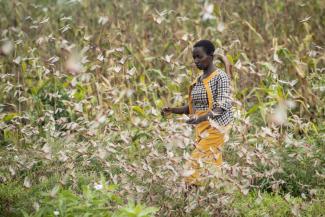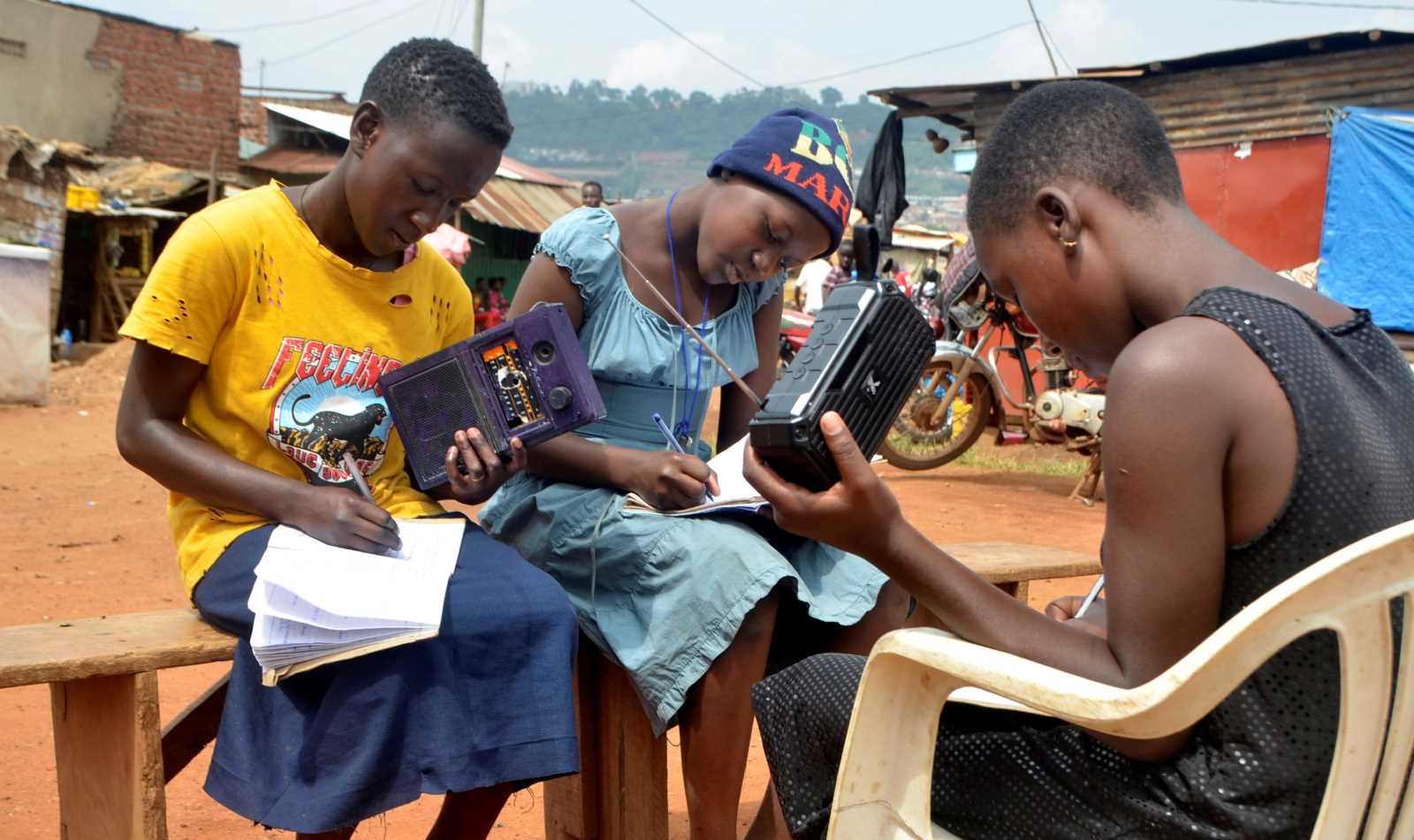Multiple crisis
Falling back

Even before Covid-19, food security was deteriorating at a global level. According to the World Food Programme’s Global Report on Food Crisis 2020, the number of people suffering food insecurity rose from 113 million in 2018 to 135 million in 2019. The member countries of the Eastern African regional organisation IGAD (Intergovernmental Authority on Development) accounted for about 20 % of the people concerned. The IGAD members are Djibouti, Ethiopia, Eritrea, Kenya, Somalia, Uganda and Sudan. According to the UN Food and Agriculture Organisation, they normally depend on about 8.5 million tons of cereal imports per year.
Agriculture is by far the most important industry in this world region. However, rain fall has become ever less predictable in the course of the climate crisis, and rain-fed agriculture has suffered accordingly. Recurring droughts and flash floods severely affect livelihoods (see my comment in Opinion section of D+C/E+Z e-Paper 2017/05). The infrastructure that is needed in view of the changing climate has not been built to a sufficient extent.
This year, things look particularly bad. One of the problems is a devastating locust plague which resulted from unusual weather conditions. For many decades, these insects have not haunted eastern Africa so harmfully. Even if this was the only problem, IGAD members would struggle to cope. Unfortunately, there are several more problems.
Covid-19 is spreading in the region. The global pandemic arrived relatively late in mid-March. At first, it only increased slowly, but it suddenly changed gear in May. By mid-June, Djibouti, the smallest IGAD member, had counted 4,500 infections and 43 dead, according to worldometers.info. To a considerable extent, the urgent health crisis has distracted governments’ attention from the plight of small farmers and pastoralists.
State capacities tend to be weak in this world region – and that is true of infrastructures too. Diminished harvests mean higher food prices. Subsistence farmers suffer in particular. Most people’s livelihoods depend on agriculture, so a crisis in the sector must make poverty worse. People’s self-esteem and community cohesion are affected negatively. Compounding problems, the Covid-19 pandemic means that health-care institutions are even more overburdened than they normally are. Issues such as malaria, measles, Guinea worm and others are not getting the attention they need. Vaccination programmes and veterinary services for livestock farmers have been winding down to considerable extent.
When disasters strike, the international community normally offers some support. This year, however, all governments are absorbed by domestic worries. Depressingly, African countries have so far not managed to coordinate the kind of trans-border action that the pandemic requires. That political and social instability haunts many countries, adds to the problems.
Eastern Africa did see progress in the past 20 years. Food security had improved, poverty was reduced, and indicators for health and education had become better. Two global initiatives were helpful, first the Millennium Development Goals and since 2015 the Sustainable Development Goals. The global community must not allow the positive developments to be undone. In the recovery efforts in the post-Covid-19 era, hard hit countries will deserve special attention.
Belay Begashaw is the director general of the Sustainable Development Goals Center for Africa (SDGC/A) in Kigali, Rwanda.
bbegashaw@sdgcafrica.org










